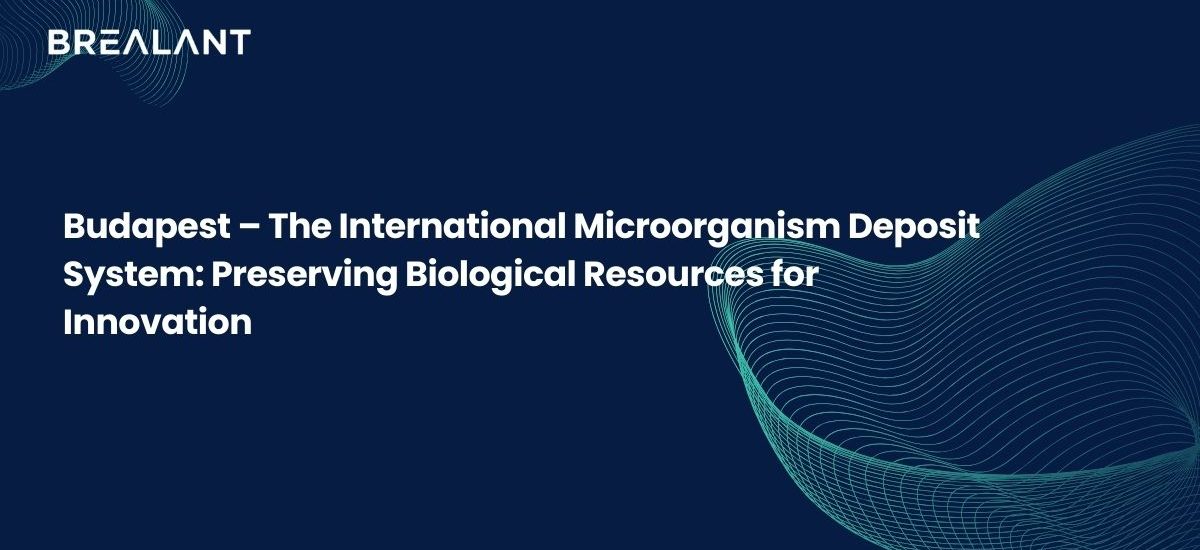In a world of rapid scientific advancement, biological resources play a pivotal role in numerous fields, from biotechnology and pharmaceuticals to agriculture and environmental science. Preserving and sharing these valuable resources is essential for global innovation, and the Budapest Treaty on the International Recognition of the Deposit of Microorganisms for Patent Procedure offers an ingenious solution. Administered by the World Intellectual Property Organization (WIPO), the Budapest Treaty establishes the Budapest Microorganism Center (BCC) as a global hub for the storage and exchange of microorganisms. In this blog, we will delve into the Budapest Treaty, explore the significance of the Budapest Microorganism Center, and discuss how it benefits innovation and scientific research worldwide.
The Budapest Treaty: An Overview
The Budapest Treaty, adopted in 1977 and entering into force in 1980, is a landmark international agreement designed to facilitate the cross-border deposit of microorganisms for patent purposes. Microorganisms, such as bacteria, fungi, and viruses, are critical for the development of various technologies, from biopharmaceuticals and biofuels to agricultural innovations. However, preserving and sharing these microorganisms while respecting patent rights and intellectual property can be a complex process.
The Budapest Treaty simplifies this process by allowing patent applicants to deposit their microorganisms in an international depository authority (IDA) for safekeeping. This deposited microorganism can then be accessed and utilized by examiners, researchers, and third parties to verify the invention’s novelty without the need for repeated deposits. It harmonizes procedures for patent offices worldwide, streamlining the examination process and contributing to the global exchange of scientific knowledge.
The Budapest Microorganism Center (BCC)
At the heart of the Budapest Treaty stands the Budapest Microorganism Center (BCC). Established by WIPO, the BCC is a specialized international depository authority. Its primary mission is to receive, store, and distribute microorganisms for patent purposes while ensuring their viability, authenticity, and accessibility. The BCC operates in line with strict quality control standards and technical requirements to maintain the integrity of deposited microorganisms.
Key Functions of the BCC:
- Depository Services: The BCC receives microorganisms from patent applicants, stores them under ideal conditions, and makes them available to patent offices and the scientific community.
- Expertise: The BCC’s dedicated staff possesses in-depth knowledge of microorganism preservation and offers expert guidance to depositors and users.
- International Collaboration: The BCC collaborates with a network of IDAs around the world, creating a comprehensive and interconnected resource for microorganism deposits.
Benefits of the Budapest Microorganism Center
- Preserving Biological Diversity: The BCC plays a crucial role in safeguarding microbial diversity. By storing a wide range of microorganisms from various sources, it ensures that these valuable biological resources are not lost, even if they become extinct.
- Accelerating Patent Procedures: The Budapest Treaty and the BCC expedite patent processes by providing a standardized system for the deposit and sharing of microorganisms. This expedites innovation in sectors where microorganisms are critical, such as biotechnology and pharmaceuticals.
- Promoting Scientific Research: The BCC’s commitment to sharing microorganisms with the scientific community promotes research and innovation. Scientists worldwide can access microorganisms for their experiments and studies, driving advancements in various fields.
- Reducing Redundant Deposits: Under the Budapest Treaty, deposited microorganisms are accessible to patent offices globally. This eliminates the need for multiple depositors to provide the same microorganism for different patent applications, reducing costs and administrative burdens.
- Fostering International Collaboration: The Budapest Treaty encourages cooperation and sharing of resources among countries and institutions. This fosters international collaboration in research and development, enhancing the quality of innovations.
Impact on Global Innovation
The Budapest Treaty and the Budapest Microorganism Center have a far-reaching impact on global innovation. Here are some notable aspects of their influence:
- Biotechnology Advancements: Microorganisms are essential in biotechnology for the production of biofuels, enzymes, and pharmaceuticals. The Budapest Treaty has significantly expedited the patenting of innovative biotechnological solutions, leading to a surge in this industry’s growth.
- Pharmaceutical Industry: The accessibility to deposited microorganisms enables pharmaceutical companies to expedite drug discovery and development. This is particularly vital for creating vaccines, antibiotics, and therapies for emerging diseases.
- Agriculture and Food Security: The exchange of microbial resources under the Budapest Treaty enhances the development of novel agricultural practices and crop improvements, contributing to global food security and sustainability.
- Environmental Bioremediation: Microorganisms play a pivotal role in bioremediation, helping to clean up polluted environments. Access to diverse microorganisms through the Budapest Treaty aids in the development of efficient and sustainable environmental cleanup solutions.
- Reducing Biopiracy: The Treaty discourages biopiracy by promoting the legal and transparent sharing of microorganisms. This helps protect the intellectual property of local communities and indigenous knowledge holders.
Conclusion
The Budapest Treaty on the International Recognition of the Deposit of Microorganisms for Patent Procedure, administered by the World Intellectual Property Organization (WIPO), has emerged as a cornerstone for global innovation. With the Budapest Microorganism Center at its core, this international agreement streamlines the deposit, sharing, and access to microorganisms for patent purposes. As a result, it facilitates progress in biotechnology, pharmaceuticals, agriculture, and environmental sciences, fostering international collaboration and safeguarding biological diversity. The Budapest Treaty and the BCC stand as shining examples of how international cooperation can drive scientific advancement and benefit humanity as a whole.





